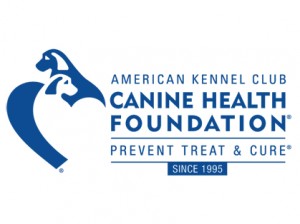Canine Health Bytes Webinar On Demand – Vector-Borne Disease
 The AKC Canine Health Foundation and VetVine have teamed up to offer a series of webinars featuring leaders in the field of veterinary health research that offer practical advice on common health concerns as well as information on cutting-edge research to benefit all dogs. The latest webinar in this series features vector-borne disease (VBD) diagnosis and is now available to view on demand.. Click here to view the following on demand.
The AKC Canine Health Foundation and VetVine have teamed up to offer a series of webinars featuring leaders in the field of veterinary health research that offer practical advice on common health concerns as well as information on cutting-edge research to benefit all dogs. The latest webinar in this series features vector-borne disease (VBD) diagnosis and is now available to view on demand.. Click here to view the following on demand.
Speaker: Pedro P. Diniz, DVM, PhD
Topic: Vector-Borne Disease Diagnostics: From “Ruff” to “Purrfect”
Worldwide, diseases that are transmitted by ticks and fleas to companion animals continue to expand in frequency and geographic distribution. While a positive test result for a vector-borne disease greatly helps the clinician in providing appropriate care, a negative test result always introduces extra challenges. Nowadays, serology and PCR are well-established methods used to diagnose vector-borne diseases (VBDs), but certain limitations of these assays impact the detection of pathogens and our ability to make a correct diagnosis.
The massively parallel sequencing technology known as next-generation sequencing (NGS) has revolutionized biological sciences. It has become a key tool in detecting and characterizing infectious diseases in humans, such as the SARS-Cov2 virus. NGS is soon to become an important tool in veterinary medicine as well.
The focus of this presentation is vector-borne disease (VBD) diagnosis and the discussion will include:
- What is working well and what needs to be improved in VBD diagnostics
- The “sample-volume paradox” of PCR assays and current efforts to address it
- How next-generation sequencing works, its advantages and limitations for VBD detection
- Best practices when interpreting serology and PCR results for VBDs
Short URL: http://caninechronicle.com/?p=200806
Comments are closed












